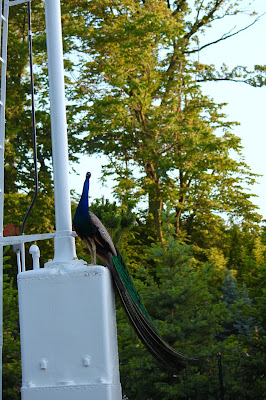I'm a bit tardy in posting this, but I will anyway. :-)
Over a week ago, Mom and Dad's investment agent hosted a 20 year celebration of her company at the Omaha Henry Doorly Zoo. Even though it was a hot evening we took Grandma and went to see the new African Grasslands exhibit.
We rode a tram halfway down to one of the zoo's new buildings. We got off to get some soda, and it started again without us! But that gave us a chance to get a closer look at the new elephants and giraffes and take some pictures.
We walked the rest of the way down to the dinner area where we enjoyed delicious food and air conditioning. :-)
We were able to pet an armadillo! Dad got a picture of the snake, but I didn't want to see it!
Waiting for the tram to take us through the zoo to the entrance
(Ellen insisted on me taking a picture of her hand. ) :-)
What a beautiful, exotic looking plant!
Tram pictures:
Selfies of course!
The tram driver said that is was very rare to see a leopard lying on the hill. (Sorry about the fence!)
Hello, Mr. Turkey!
The prarie dogs are my favorite. They live on the zoo property and have made themselves an exciting exhibit all on their own. They were just everywhere!
And this time of year they also have babies!
Do you know how hard it is to snap a good picture of one of those fast little things when you are on a moving tram!
This one obviously didn't want company. :-)
What beautiful peacock!
How nice a splash of cold water felt!
I couldn't resist getting a few pictures of some of the beautiful flowers during the last little bit up the hill.
Despite the heat, we all had an enjoyable time. It was fun getting to see the new improvements at the zoo, and spend time together as a family (and have a nice dinner and take some photos.) :-)




























































